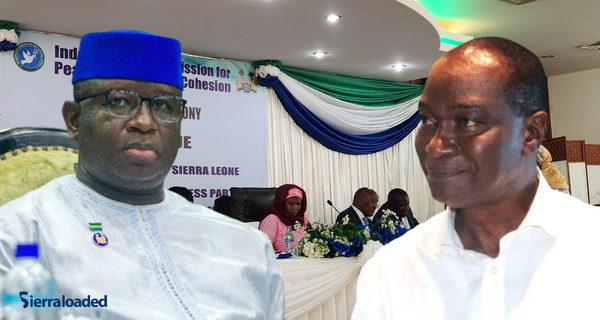The outcome of the recently-concluded mediated dialogue between the main opposition APC and the ruling SLPP government was received with mixed feelings by the wider Sierra Leonean populace. I have been busy weighing citizens’ opinions/hopes/frustrations on the matter before deciding to share my humble thoughts too.
It must be noted that while (in my opinion) the dialogue ought to be seen as a win for the country, there are hawks within the APC and SLPP who would have wanted their extreme stances to be considered! While some APC ‘hawkish’ members and supporters saw Dr. Samura Kamara as merely a sell-out…, the same radical elements within the SLPP believed the government gave away too much. However, there were many critical variables in play that most ordinary citizens didn’t countenance. Despite their show of bravado, both negotiating teams knew they had strengths and weaknesses that would inform their actions/positions.
Strengths and Weaknesses of the Government and the APC going into the dialogue room
For the government’s strengths, they relied on the laws of the land (the Constitution and the 2022 elections act) to justify that the elections were done right; and the President had long been sworn in, appointments made, and government was functioning, albeit strenuously. In terms of weaknesses, the non-participation of the APC in governance; key Western governments’ open snubbing (keeping their congratulations) of the President; refusing/delay to give government the MCC cash; challenge to get a 2/3rd majority in Parliament to pass/review important laws, (especially the 1991 Constitution) due to the absence of majority of APC MPs etc. made governing an arduous affair.
For the APC’s strengths: they were largely successful in non-participation in governance – thereby heaping additional pressure on the government to listen to their demands; their membership (within the country and the diaspora) successful in getting key Western governments not to openly recognize/support the government like it used to be; the cloud of political uncertainty scaring at least some investors and indirectly hurting the economy; the general hard times…makes President Bio ‘appear’ less concerned, if not incapable of handling the ‘bread and butter issues’ etc.
For the weaknesses, the APC leadership failed or was unable to take the ECSL to court (to produce the ‘disaggregated data’) fanning reasonable speculation that they did not have a case to make at all, and were bluffing to save face amongst their membership. Some top-tier APC members were openly writing/criticizing their leadership for ‘being bad losers who do not have the courage to admit defeat…’; their elected Mayors/Chairpersons, councillors and MPs (who weren’t paid due to the boycott) were getting impatient and contemplating going to work (as Dr. Samura Kamara himself alluded during his post-Bintumani interview); many APC top-level (including the very Dr. Samura Kamara) and many low-level members were either in police cells or in prisons or were having many elections- related/motivated cases in court; the US government kept openly asking the APC not to boycott governance, taking away their steam etc.
Analysis
With these strengths and weaknesses of both the government and the APC, do you think it was tenable for either party to just talk tough and keep insisting on all demands? Both parties were hurting due to the stalemate. They needed to get things going. For example, I have heard people say, ‘the government should not have agreed to ‘consider’ letting go those APC members/supporters in police cells or prisons in connection with elections-related offences’. Under normal circumstances, I would share such a viewpoint; but all things are not equal. Rubbishing the principle of Separations of Power, the Executive would be expected to swallow the bitter pill by interfering into the work of a different arm (the Judiciary) just for the sake of progress. It takes courage to make such a call. It was also courageous for Dr. Samura Kamara to sign…at Bintumani without getting the ECSL to produce the ‘disaggregated data’ or getting a re-run of the elections as some unrealistically expected.
As some APC members were expecting Dr. Samura Kamara to revert to them (to seek their opinions first) before signing, that was uncalled for. Dr. Kamara (and team) were in a better position to examine all the angles, and make the tough call! Dr. Kamara and the government, at the point of discussing and signing, were not just wearing partisan hats.They took decisions that would benefit not just their mild and extreme party members, but the wider citizenry. That is what you call responsible leadership – one that does not entertain parochial interests alone. Let us hope that the resolutions would be timely adhered to (by both sides) in good faith.


 4 Comments
4 Comments









Comment(s)
Disclaimer: Comments expressed here do not reflect the opinions of Sierraloaded or any employee thereof.